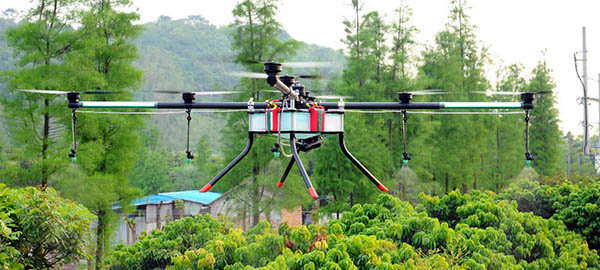Pest control is a critical aspect of agriculture, but traditional methods often involve the extensive use of chemicals that can harm the environment. Agricultural drones are emerging as eco-friendly alternatives for sustainable pest control. In this article, we will explore the role of agricultural drones in achieving sustainable pest control practices in agriculture.
Pests, including insects, rodents, and birds, can cause significant damage to crops. Traditional pest management methods typically rely on broad-spectrum chemical treatments, which can have adverse effects on non-target organisms and contribute to environmental pollution. Agricultural drones offer a more targeted and precise approach to pest control.
Agricultural drones can carry sprayers that apply pesticides or herbicides with remarkable precision. By targeting affected areas specifically, they reduce chemical usage and minimize environmental impact. This approach not only protects beneficial organisms but also mitigates the risk of chemical runoff into water bodies.
In addition to precision treatment application, drones equipped with cameras and sensors can detect and monitor pest activity. They can capture high-resolution images and thermal data, providing valuable insights for pest management decisions. Farmers can identify pest hotspots and assess the extent of infestations, enabling them to choose the most effective intervention strategies.
One of the significant advantages of using drones for pest control is their ability to cover large areas quickly. Traditional pest control methods, such as manual inspections or spot checks, are time-consuming and labor-intensive. Drones, on the other hand, can survey the entire farm efficiently, ensuring that no part of the field is left unmonitored.
Drones can also be used for non-lethal pest deterrence. They can emit loud noises or employ visual deterrents to discourage pests, which promotes biodiversity and minimizes harm to non-target species.
In conclusion, agricultural drones are transforming pest control in agriculture by offering precision application of treatments, efficient monitoring, and eco-friendly solutions. They contribute to sustainable pest control practices that protect the environment and promote healthier and more productive crops.







Please sign in to comment
register